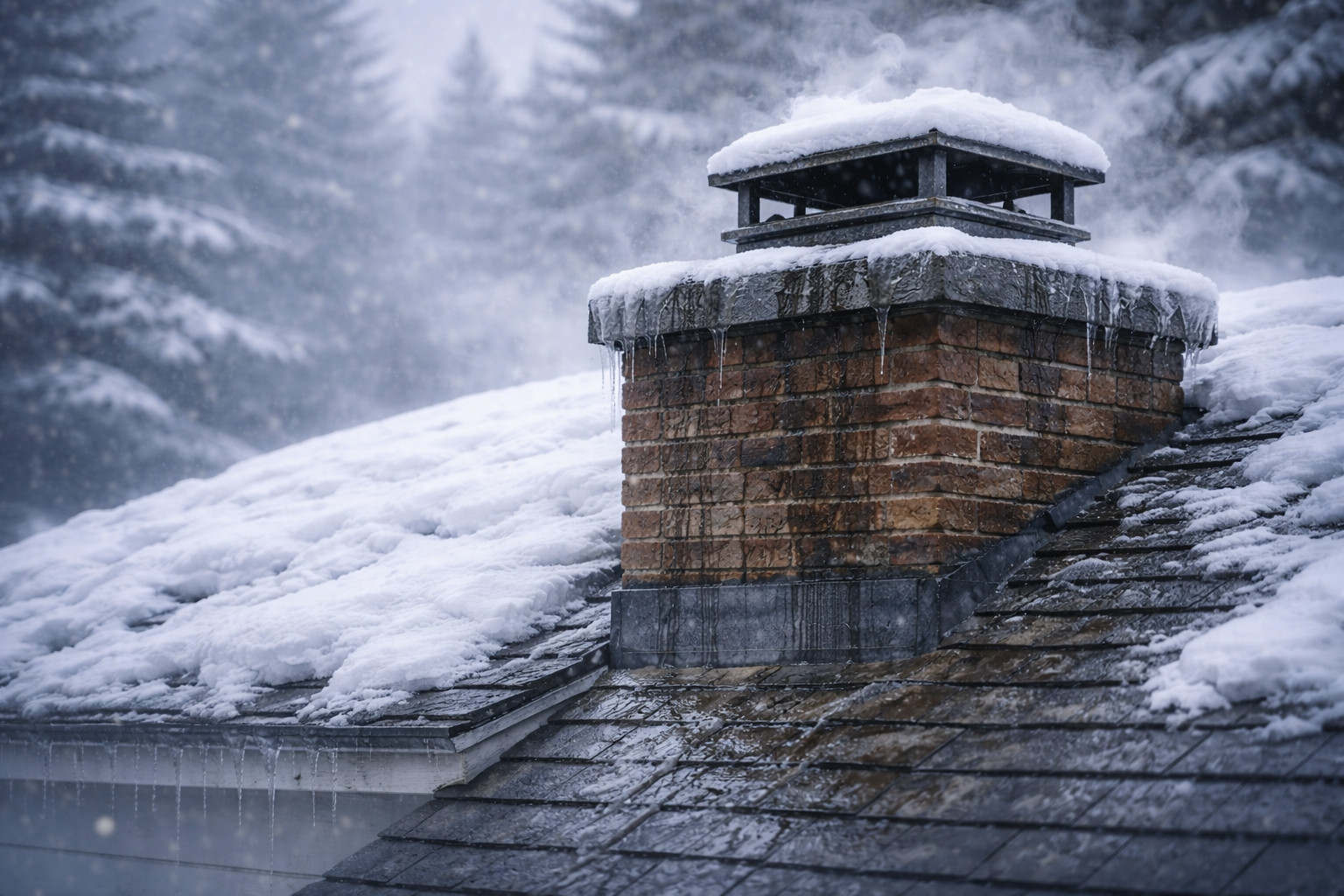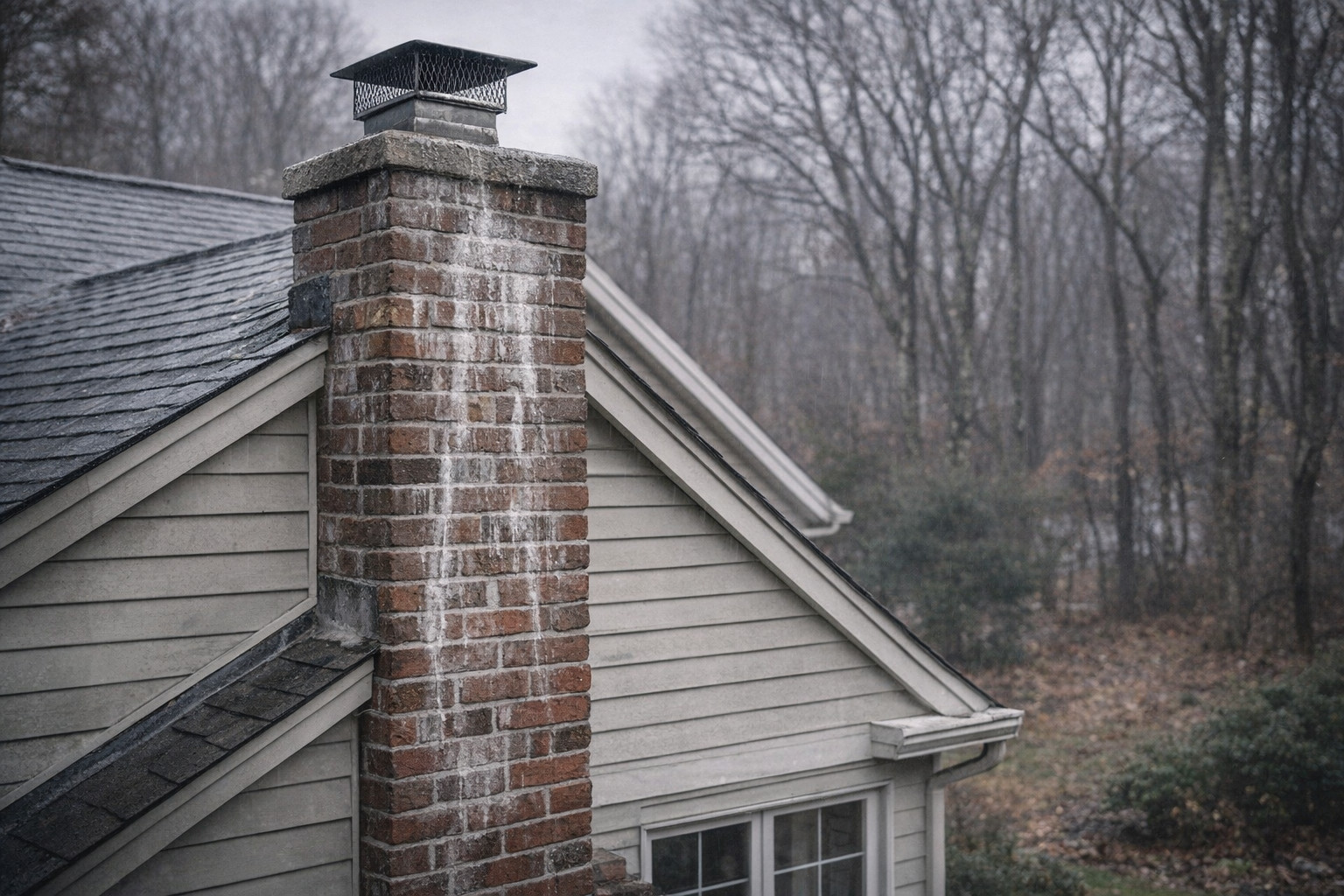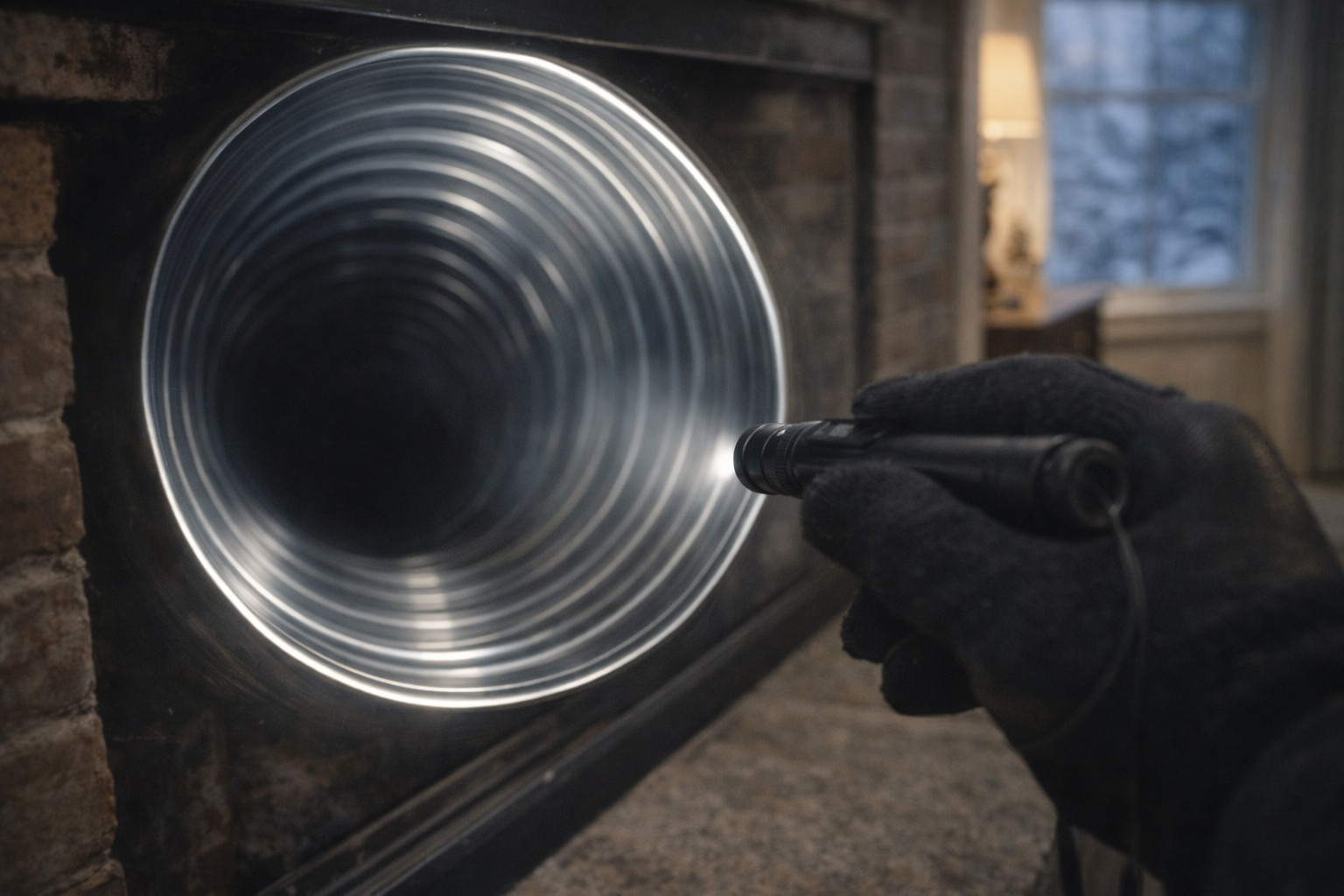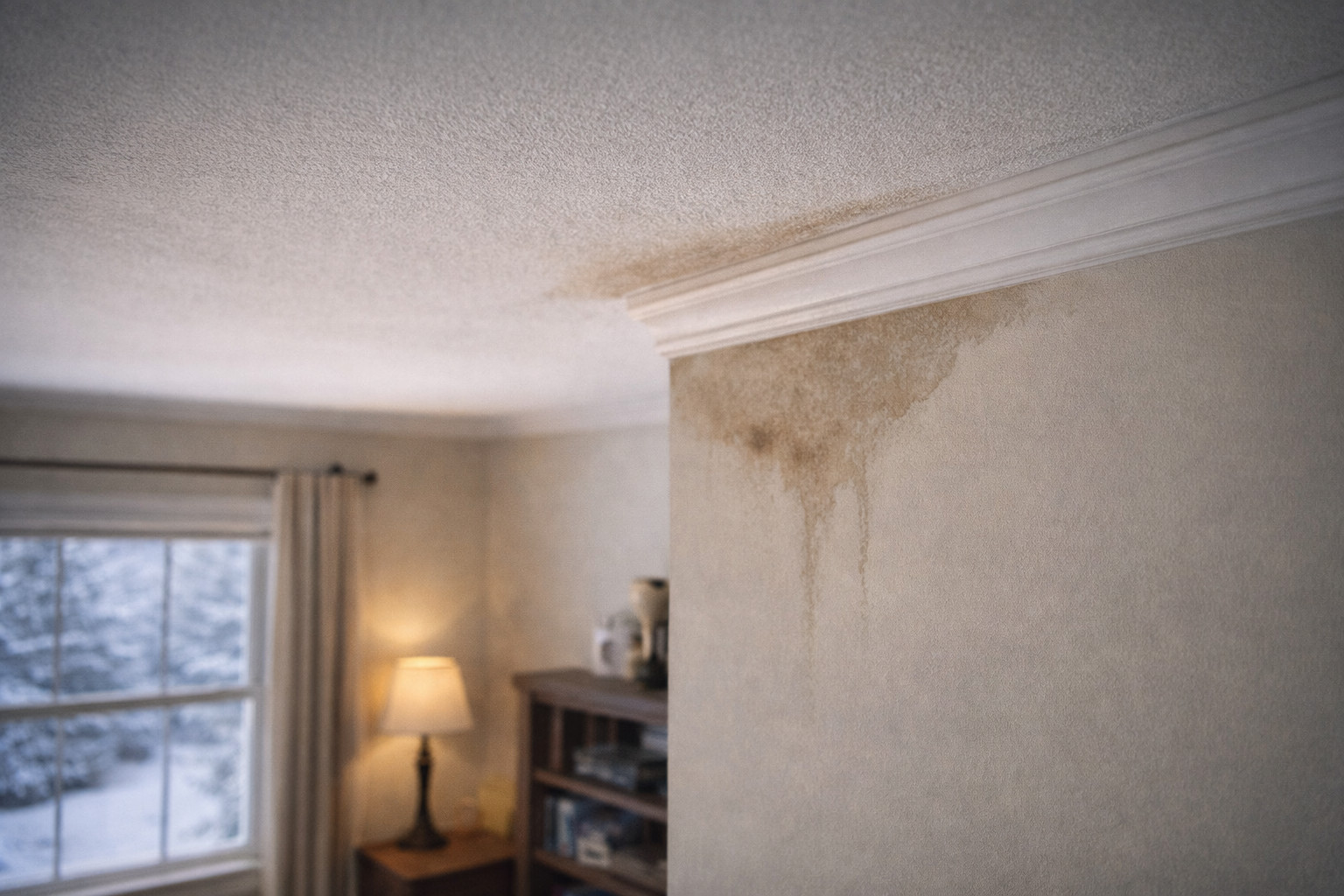Top 5 Signs It’s Time for a Chimney Inspection in Fairfield County
If you own a fireplace or wood stove in Fairfield, CT, creosote buildup is one of the biggest risks to your home’s safety. This flammable residue increases the chance of chimney fires and carbon monoxide leaks. Certified Chimney provides expert cleaning and inspections to keep your home safe year-round.
Share:
Table of Contents
When was the last time you had your chimney inspected? If you live in Fairfield County, annual chimney inspections aren’t just a seasonal suggestion they’re essential for home safety, energy efficiency, and protecting your investment. Whether you use your fireplace regularly or just during the winter months, an unchecked chimney system can hide dangers like creosote buildup, water damage, and even carbon monoxide leaks.
Below are the top 5 signs your chimney might be overdue for an inspection. Understanding these red flags can help you avoid costly chimney repairs and serious safety hazards.
Visible Damage to the Chimney Structure
Cracks, Loose Bricks, and Mortar Deterioration
One of the most obvious signs you need a chimney inspection is visible masonry damage. Over time, cracking mortar joints, spalling bricks, or a leaning chimney can signal deeper structural issues. In areas like Fairfield, where winters bring freeze-thaw cycles, moisture trapped in bricks can expand and cause severe deterioration.
Stained Brick or Moss Growth
If you notice stained bricks, green moss, or white deposits (efflorescence), this indicates excessive moisture exposure. Moisture doesn’t just erode the exterior; it can compromise your flue lining, crown, and chimney cap, leading to long-term problems.
Learn more about moisture and masonry from the Chimney Safety Institute of America (CSIA)
Strong, Unusual Odors from the Fireplace
Creosote and Soot Smells
If your home smells like burning wood even when the fireplace isn’t on, it’s likely due to creosote buildup or soot trapped in your flue. Creosote is not only flammable t’s also toxic. The National Fire Protection Association (NFPA) recommends chimney inspections annually to catch this early.
Mold or Mildew Odors
A musty smell may indicate water entry or mold growth inside your chimney. If left unaddressed, this can spread to your interior walls or compromise air quality particularly dangerous for homes with HVAC systems connected near the chimney stack.
Smoke Backdraft or Poor Drafting
Smoke Entering the Home
When smoke flows into your home instead of up the flue, that’s a major warning sign. It could be due to a blocked flue, animal nesting, or a malfunctioning chimney damper.
Draft Disruption from Exterior Issues
High winds, roof penetrations, or improper chimney flashing can all contribute to draft issues. Sometimes, insulation changes or attic renovations affect how air moves through the home and up the chimney, making inspection critical.
Water Damage or Leaks Around the Fireplace
Interior Water Stains or Rust
If you notice water stains, rust on your fireplace doors, or damaged drywall near the chimney, don’t ignore it. Water intrusion can lead to masonry repair, chimney relining, or even foundation cracks in extreme cases.
Roof Flashing and Cap Failures
In Fairfield County, heavy rain, ice dams, and storm damage often cause issues with metal flashing or dislodged chimney caps. Without proper protection, water enters through the smallest cracks and causes progressive rot.
It’s Been Over a Year Since Your Last Inspection
The Annual Rule of Thumb
The Chimney Safety Institute of America (CSIA) and NFPA recommend having your chimney inspected at least once per year even if you don’t use it often. This ensures all components are intact, free from obstructions, and safe to operate.
Homes for Sale or Recently Purchased
If you’re buying or selling a home in Connecticut, an inspection is often required as part of the home inspection checklist. Even if not mandatory, it’s a wise choice many homeowners discover hidden issues in the chimney liner, flue, or smoke chamber during real estate transactions.
For those listing their homes on the Fairfield County real estate market, chimney condition can impact home value and inspection results.
Why Chimney Inspections Matter More in Fairfield County
Weather & Seasonal Challenges
With coastal storms, snow, and humidity, Fairfield County homes are particularly susceptible to moisture intrusion and masonry wear. Chimneys here need to withstand extreme weather variations and consistent freeze-thaw cycles.
Aging Chimney Systems in Older Homes
Many homes in towns like New Fairfield, Westport, or Darien were built decades ago. Their chimneys may contain clay tiles, outdated metal liners, or lack proper ventilation entirely. These systems should be assessed regularly to ensure safe operation.
What to Expect During a Professional Chimney Inspection
Levels of Chimney Inspections
The CSIA outlines three levels of inspections depending on your needs:
- Level 1 – Basic visual inspection (annual maintenance)
- Level 2 – Required for real estate transactions, major weather events, or system changes
- Level 3 – Full removal of chimney components for inaccessible areas (rare, but necessary for major structural concerns)
Working with Certified Chimney Technicians
Always hire a professional certified by the Chimney Safety Institute of America and listed by the Better Business Bureau. Certified Chimney provides inspection services across Fairfield County with a focus on safety, transparency, and long-term maintenance.
Final Thoughts: Protect Your Home and Family
Ignoring your chimney can lead to fire hazards, structural damage, and serious health concerns from carbon monoxide poisoning or poor air quality. Don’t wait for smoke in your living room or leaks in your ceiling to take action.
If you’ve noticed any of the signs above, or it’s just been over a year, it’s time to schedule a professional chimney inspection in Fairfield County. Keep your home safe, warm, and efficient for every season.
Contact Certified Chimney today to book your inspection or learn more about our chimney services.
Article details:
- Published by:
- Certified Chimney CT
- Published to:
- Last modified:
- August 24, 2025
Share:
Continue learning:




